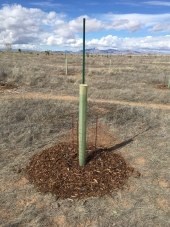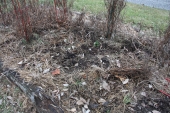posted 1 year ago
i am growing cherry tomatoes for market this year in a somewhat unsatisfactory soil. to give some more context: this plot was a community garden 5 years ago, was left to return to basically grass meadow (not native meadow) and there is only still about a foot and a half of fertile soil, underneath it is gravel and clay, and under that well it seems to be hard as rock! there IS drainage but it is not very good at all, and lesson learned was the first of the two pea sowings was not as successful because of the heavy april rains (toronto ontario) waterlogging the soil. SO, i am still going forth with the cherry tomatoes, a very high quality seed and my seedlings are ready to plant now after i finish preparing my beds (walk behind tractor with minimal compost tilled in). but I really dont like using a bunch of amendments and fertilizers other than compost so i would like to hear some honest experiences possibly similar to my own, i cannot invest in something new like hugelkultur or spend loads of money on worm castings, so my problem is finding an economic and low intervention way of giving these cherry tomatoes a healthy life! i dont care tremendously about the highest yield, i just want a healthy, productive plant that does not require too much feeding if possible! despite what i have heard on the internet about tomatoes needing lots of supplements, i know they didnt recieve them as a native plant other than through compost, however the heavy modification of the tomato makes me wonder what the truth is ?!?!!?!
i am part of a community farm and this site was just started up this year, so our compost is still in progress, i also wonder about compost teas and such, there is so much mixed information!
OH! the TOMATO!.........
side question: any success growing nasturtium with cherry tomatoes?
~cappucine, 27, toronto, canada, first year market farmer







